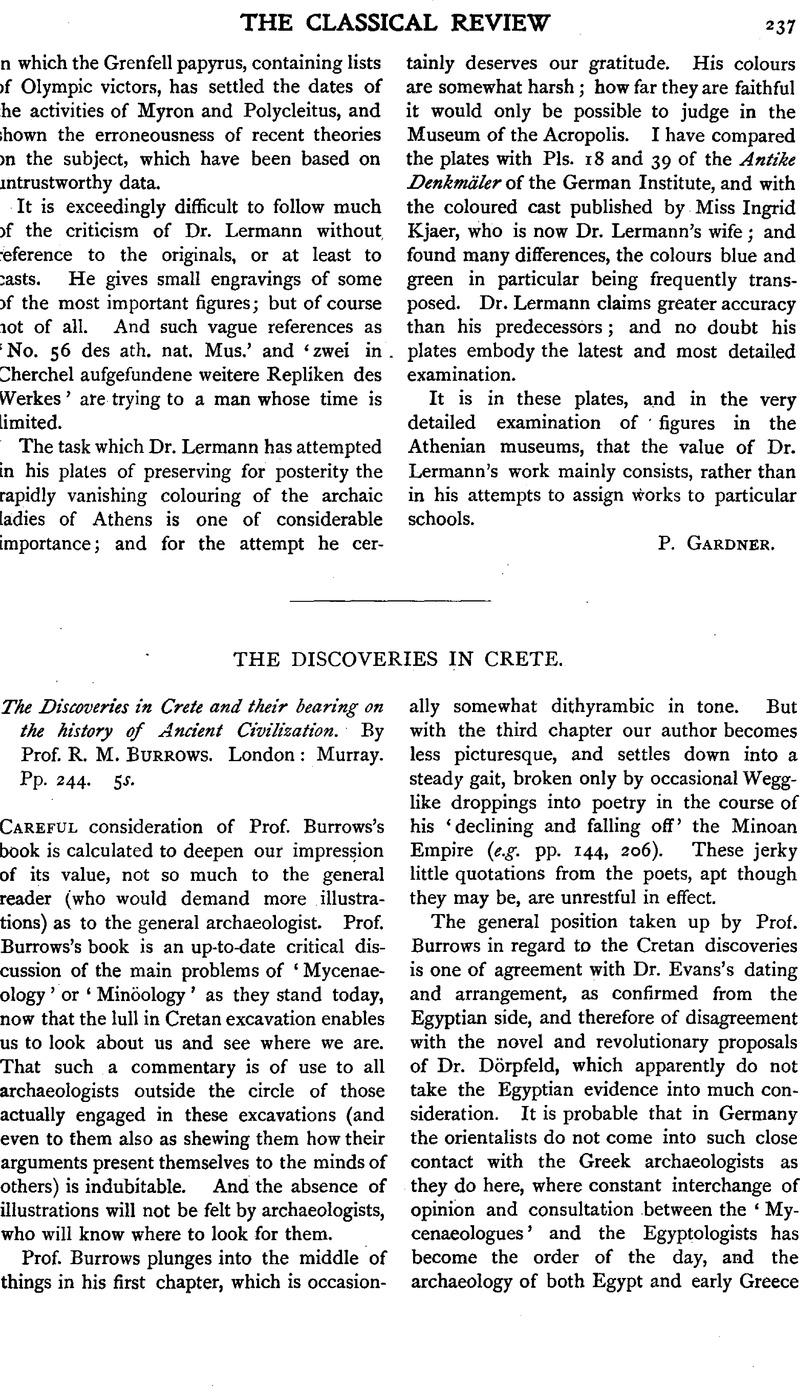No CrossRef data available.
Published online by Cambridge University Press: 27 October 2009

1 On p. 220 of the last number of the Anmuil of the British School at Athens, Dr. Mackenzie says that my use of the ‘designations “kleinasiatisch” and “ Asianic,” as well asother statements in the passage cited’ (‘The Two Labyrinths,’ J.H.S. xxv. p. 323), ‘ would seem to indicate an underlying belief on Mr. Hall's part that the primary movement of the Aegeo-Pelasgian people was from an initial centre of departure in Asia’ I should have thought that the concluding sentences of my article (loc. cit. p. 337) would have shewn that I did not believe anything of the kind. I have never thought that the Mediterraneans (Aegeans and Egyptians) came from Asia Minor, and for some time past it has seemed to me that the place of common origin was Africa, perhaps the Nile-valley itself rather than ‘ Libya.’ I used the words ‘ kleinasiatisch’ and ‘ Asianic’ of language, not of race, simply because Lycian and Carian are the best-known examples of the non-Aryan languagegroup to which Ibelieve ‘ Minoan’ belonged, and they have naturally been called ‘ kleinasiatisch’ and ‘ Asianic,’ because they were spoken in Asia Minor.It seems to me that if we are to regard the Carians and Lycians as akin to the Minoans, they came from the west and south, likethem.